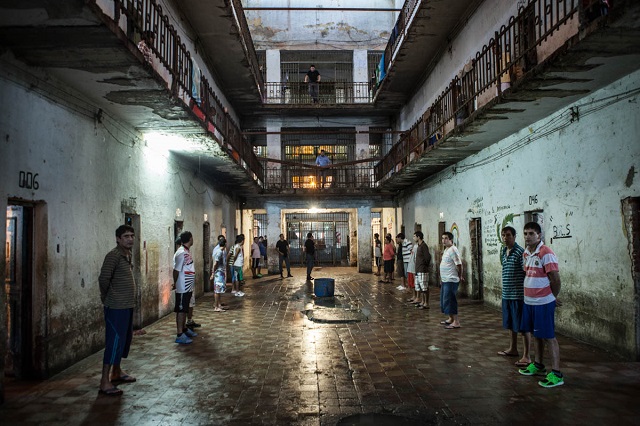More than 500 detainees in the Villa Urquiza penitentiary prison have been pursuing the hunger strike from August 23rd to September 1st. The situation has been fueled by a concatenation of events, which had as the engine button the deep discontent and daily discomfort of detainees due to the terrible circumstances in which they have been for years.
Starting from mid-August, news, pictures and videos of the terrible living conditions of detainees in the penitentiary prison of Villa Urquiza in the Argentine province of Tucuman began to spread, but the spark that started the fire was the visit of the National Public Prosecution Office (PPN), which took place from August 9 to 11, that refocused the attention on the subject, especially after PPN published a harsh prison report describing the severity of the situation and detecting numerous violations of the fundamental rights of detainees; on the agency’s web site a very raw video, shot inside the prison units, was also published.
Deficiencies and violations suffered by these prisoners are several, primarily the lack of access to adequate health care, nutrition and education, the decadent conditions of infrastructures and housing do not meet the minimum living standards, in addition to the big problem of overcrowding and the consequent use of non-qualifying areas as housing for detainees subjected to solitary confinement.
Given the severity of the situation a recommendation was made to the provincial authorities on the issue, and furthermore have intervened jointly the Human Rights Office of the Supreme Court of Tucumán, the Prisons Commission of the Ministry of Defence and the Federal Prosecutor n. 2 of Tucuman.
The protest took place peacefully and with respect of the normal coexistence, announced the Director of the provincial prison system, Guillermo Snaider, and a constant monitoring by the medical service has been activated, nevertheless the day after the beginning of the peaceful strike visits to detainees, who had participated in the protest were prohibited by the penitentiary administration.
The main reason for the protest of the detainees is the demand of speeding up procedures in order to have granted certain benefits such as temporary exit permits, as long as they have served more than 50% of the sentence, as provided by the law 24.660, and speeding up the execution of judgements.
In addition to the slow timing, a further reason for protest was the application of new requirements to the law 24.600, by the Criminal Court of the Capital, such as urinary analysis, to record whether or not there has been consumption of substances, denying temporary exit to those who do not comply with that measure.
One of the contributing causes of the length of procedures is to be ascribed, above all, to the poor and little synchronized communication between the “Patronato de Liberados”, who deals with the reintegration of former prisoners into society after they have been sentenced, and the judge who executes it, in the case of the province of Tucumán this is the former director of the prison, Roberto Guyot, whom, once appointed as a judge of the province, did not take service for about a year, due to misunderstandings with the local court on the location of its offices. This led the detainees to not having received any response by the Court of execution (of which Guyot is president) neither negative nor positive, on their temporary exit requests.
In addition, the DNG Prison Commission denounced the lack of access to justice for prisoners, in most cases, in fact, the letters submitted by detainees to the authorities of the different units of the Provincial penitentiary Service almost never reached their destination, in the hands of their lawyers, the courts, or family members, and appeals or petitions of habeas corpus were rarely applied.
The non-violent action of the detainees at Villa Urquiza has also spread to another penitentiary institution, Concepcion, in the south of the province, where nearly fifty prisoners have joined the hunger strike.
The initiative came to an end officially on September 1st, and with its peaceful methods it seemed to have smothered the waters on the ground of justice in the province of Tucuman.
Among the conditions the detainees put in order to stop the protest, there was a visit by Judge Guyot to the jail, after that the Supreme Court of Justice ordered the habeas corpus, and so it happened. Director Guillermo Snaider then confirmed the suspension of the strike and emphasized how this time has been dealt with respect, and it highlighted its importance in having given impetus to a serious, integrated and responsible dialogue.
The Supreme Court of Justice has repeatedly stated that imprisonment does not deprive a man of the law protection, and one of the main detainees rights that must be protected is to be informed about their procedural and administrative status.
Moreover, the presence of the Judge who gives Execution to Sentence takes on a preponderant role as he is the guardian of respect for the principles of criminal prosecution and its function can not be limited to the monitoring and control of the execution of what has been established, but must ensure respect for all the rights that assist the convicted and then prevent them from suffering a deterioration in their prison conditions.
Irene Guidarelli
@nerei14

